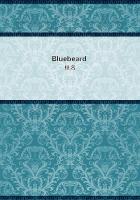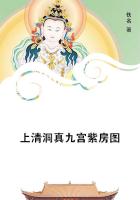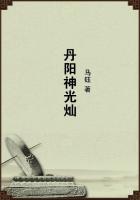Oxford has usually been described either by her lovers or her malcontents. She has suffered the extremes of filial ingratitude and affection. There is something in the place that makes all her children either adore or detest her; and it is difficult, indeed, to pick out the truth concerning her past social condition from the satires and the encomiums. Nor is it easy to say what qualities in Oxford, and what answering characteristics in any of her sons, will beget the favourable or the unfavourable verdict. Gibbon, one might have thought, saw the sunny, and Johnson the shady, side of the University. With youth, and wealth, and liberty, with a set of three beautiful rooms in that "stately pile, the new building of Magdalen College," Gibbon found nothing in Oxford to please him--nothing to admire, nothing to love. From his poor and lofty rooms in Pembroke Gate-tower the hypochondriac Johnson--rugged, anxious, and conscious of his great unemployed power--looked down on a much more pleasant Oxford, on a city and on schools that he never ceased to regard with affection. This contrast is found in the opinions of our contemporaries. One man will pass his time in sneering at his tutors and his companions, in turning listlessly from study to study, in following false tendencies, and picking up scraps of knowledge which he despises, and in later life he will detest his University. There are wiser and more successful students, who yet bear away a grudge against the stately mother of us all, that so easily can disregard our petty spleens and ungrateful rancour. Mr. Lowe's most bitter congratulatory addresses to the "happy Civil Engineers," and his unkindest cuts at ancient history, and at the old philosophies which "on Argive heights divinely sung," move her not at all. Meanwhile, the majority of men are more kindly compact, and have more natural affections, and on them the memory of their earliest friendships, and of that beautiful environment which Oxford gave to their years of youth, is not wholly wasted.
There are more Johnsons, happily, in this matter, than Gibbons.
There is little need to repeat the familiar story of Johnson's life at Pembroke. He went up in the October term of 1728, being then nineteen years of age, and already full of that wide and miscellaneous classical reading which the Oxford course, then as now, somewhat discouraged. "His figure and manner appeared strange" to the company in which he found himself; and when he broke silence it was with a quotation from Macrobius. To his tutor's lectures, as a later poet says, "with freshman zeal he went"; but his zeal did not last out the discovery that the tutor was "a heavy man," and the fact that there was "sliding on Christ Church Meadow." Have any of the artists who repeat, with perseverance, the most famous scenes in the Doctor's life--drawn him sliding on Christ Church meadows, sliding in these worn and clouted shoes of his, and with that figure which even the exercise of skating could not have made "swan-like," to quote the young lady in "Pickwick"? Johnson was "sconced" in the sum of twopence for cutting lecture; and it is rather curious that the amount of the fine was the same four hundred years earlier, when Master Stoke, of Catte Hall (whose career we touched on in the second of these sketches), deserted his lessons. It was when he was thus sconced that Johnson made that reply which Boswell preserves "as a specimen of the antithetical character of his wit"--"Sir, you have sconced me twopence for non-attendance on a lecture not worth a penny."
Sconcing seems to have been the penalty for offences very various in degree. "A young fellow of Balliol College having, upon some discontent, cut his throat very dangerously, the master of his College sent his servitor to the buttery-book to sconce him five shillings; and," says the Doctor, "tell him that the next time he cuts his throat I'll sconce him ten!" This prosaic punishment might perhaps deter some Werthers from playing with edged tools.
From Boswell's meagre account of Johnson's Oxford career we gather some facts which supplement the description of Gibbon. The future historian went into residence twenty-three years after Johnson departed without taking his degree. Gibbon was a gentleman commoner, and was permitted by the easy discipline of Magdalen to behave just as he pleased. He "eloped," as he says, from Oxford, as often as he chose, and went up to town, where he was by no means the ideal of "the Manly Oxonian in London." The fellows of Magdalen, possessing a revenue which private avarice might easily have raised to 30,000 pounds, took no interest in their pupils. Gibbon's tutor read a few Latin plays with his pupil, in a style of dry and literal translation. The other fellows, less conscientious, passed their lives in tippling and tattling, discussing the "Oxford Toasts," and drinking other toasts to the king over the water. "Some duties," says Gibbon, "may possibly have been imposed on the poor scholars," but "the velvet cap was the cap of liberty," and the gentleman commoner consulted only his own pleasure. Johnson was a poor scholar, and on him duties were imposed. He was requested to write an ode on the Gunpowder Plot, and Boswell thinks "his vivacity and imagination must have produced something fine." He neglected, however, with his usual indolence, this opportunity of producing something fine. Another exercise imposed on the poor was the translation of Mr. Pope's "Messiah," in which the young Pembroke man succeeded so well that, by Mr. Pope's own generous confession, future ages would doubt whether the English or the Latin piece was the original. Johnson complained that no man could be properly inspired by the Pembroke "coll," or college beer, which was then commonly drunk by undergraduates, still guiltless of Rhine wines, and of collecting Chinese monsters.
Carmina vis nostri scribant meliora poetae Ingenium jubeas purior baustus alat.













